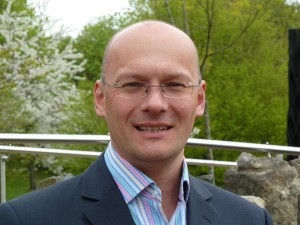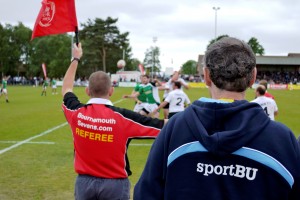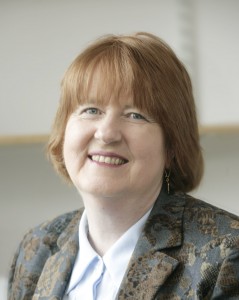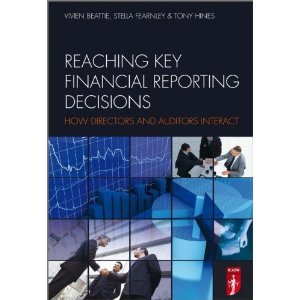Author: Kevin McGhee, Wei-Jun Liang, M. David Osselton (ApSci)
Alternative name suggestion:
Living with environmental change – Health and Wellbeing in the Fast-changing Environments
Functional Genomics and Integrated Systems Biology
Brief theme summary:
In the dynamic and fast-changing natural or social environments, we are exposed to a variety of pollutants, drugs, viruses and deadly pathogens. As the ages of our population are rising, so are degenerative diseases, such as cancer, cardiovascular and Alzheimer’s diseases. Therefore, understanding those environmental impacts on human health and aging is paramount and becomes one of the top priorities in the vision of RCUK.
Differences in genetic make-up between individuals and different populations make us respond differently to harmful agents including prescribed medicinal drugs, beneficial to some or detrimental to others. The desire to understand detailed mechanisms in order to provide better healthcare had been monumentally dispirited before we were able to reveal the detailed differences in our genomes. Ever since the completion of human genome sequencing in 2004, the advancement in genome sciences in conjunction with that of environmental sciences provides opportunities for substantiating the improvement of human health and wellbeing as well as management of healthcare of aging populations. Since the genomic sequences of many other important organisms have also been determined, comparative genomic studies between humans and amongst other organisms is currently the most powerful way to unravel the intricate interrelationships of human health and environment. In the post-genome era, this newer vision of biological sciences driven by the concept of systems biology is currently pursued internationally.
With our expertise in molecular biology, human genetics, toxicology and analytical chemistry as well as some of the essential equipment, we can take advantage of functional genomics in order to drive the research theme in human health and wellbeing, and aging, in relation to environmental, social and cultural factors.
Scope of theme: what is included?
Our current on-going research embraces the following areas:
Pharmacogenomics
- Molecular networks of integrin-linked mechanical signalling in relation to human heart disease – Bioimaging (in collaboration with Professor Jiang Jun Zhang of Media School and Professor Adrian Podoleanu of Kent University).
- Impacts of SNP (genetic variations) on the toxicities of methadone amongst populations (in collaboration with Professor David Paunder of Dundee University).
- Impacts of SNP (genetic variations) on the efficacy of morphine in patient pain management (collaboration with Tamas Hikish of Royal Bournemouth Hospital and Dr Joy Ross of Royal Marsden Hospital in London).
Biodiversities and conservation
- Evaluation and protection of local red squirrel populations in Dorset (in collaboration with Dr Kathy Hodder).
- Evaluation and protection of local Padina species to exploit their economic potential (in collaboration with Dr Roger Herbert).
- Molecular mechanisms of pheromone-communications of diverse species (in collaboration with Professor Rudy Gozlan).
- DNA profiling for human and animal identifications in the fields of anthropology and archaeology.
Our topics of interests in the immediate future:
- Human vitamin C transport and its impact on human degenerative diseases, such as cardiovascular and Alzheimer’s diseases.
- Human detoxification pathways in relation to the glucuronidation and transport, and personalised medicine (in collaboration with Prof Stephen Wong of Wake Forest University, USA)
- Molecular mechanisms of infectious diesease (in collaboration with Professor Rudy Gozlan).
Scope of theme: what is excluded? Not sure.
Which big societal questions are addressed by this theme?
Humans are exposed to a variety of pollutants, drugs, viruses and deadly pathogens in the modern fast-changing environments. Degenerative diseases, such as cancer, cardiovascular and Alzheimer’s diseases are often associated with aging. To effectively maintain human health and wellbeing, understanding those environmental impacts on human health and aging using the approaches of functional genomics and systems biology is paramount and becomes one of the top priorities in the vision of RCUK.
How do these link to the priorities of the major funding bodies?
Health and well being is one of the most important research areas funded by some of the CRUK, namely, the BBSRC, the Wellcome Trust, the MRC, the Royal Society, from which we could sort future funding.
Our proposed research theme fits very well to the underlined strategic research priorities of the Two Current Research Priority Themes of the MRC:
- Resilience, repair and replacement (Natural protection, Tissue disease and degeneration, Mental health and wellbeing, and Repair and replacement).
- Living a long and healthy life (Genetics and disease, Life course perspective, Lifestyles affecting health, Environment and health).
As highlighted by the BBSRC, systems biology is the pivotal approach for addressing issues in human health, aging and diseases. It is an effective way forward to study human health in the aspects of epidemiology, such as parasites, virus, and infectious disease. Our research theme also fits well to strategic research priorities of the BBSRC, in exploiting new ways of working were outline as:
- Data driven biology
- Synthetic biology
- Systems approaches to the biosciences
- Technology development for the biosciences
Our research theme also fits well to The Cross–Council Priorities outlined by the BBSRC:
The Wellcome Trust also focuses on health and wellbeing associated with functional genomics. The Royal Society promotes international collaborations, and is encouraging collaborative studies on human health, wellbeing and aging impacted by population single nucleotide polymorphisms (SNPs) coincided with human life style and different ethnicities in the diverse living environments.
To follow the strategies outlined by RCUK in promoting 3Rs (Replacement, Refinement and Reduction of Animals in Research), we propose to use the cost-effective and well characterised model organisms, fruit-fly and zebra fish to study the molecular mechanisms in conjunction with survey data from human subjects. The genome information of those model organisms is known and the organisms are amendable to genetic defects and molecular manipulations. Moreover, at least 75% of human disease genes have their counterparts in their genomes.
How does this theme interlink with the other BU themes currently under consideration?
Our research theme is complementary to the existing research in HSC and will be of interest to local hospitals and communities. Although a small team, we have the expertise in molecular biology, toxicology, and analytical chemistry with some of the essential equipment. Our current research orientations already fit well with the remit of our university research and enterprise strategies. We certainly would like to contribute to the existing theme of research orientations, particularly, health and well being, aging, environmental sciences, and social and cultural sciences within the university. Our expertise will enable us to form close link with the existing research groups that have already formed critical mass, particularly in the ApSci and HSC.
Through our research, we have already formed strong links with the Media School of BU and Physics Department in the University of Kent for bioimaging and biomodelling. We have already submitted a strong interdisciplinary research proposal to the MRC, addressing the impacts of genome on heart diseases. We will maintain this collaborative consortium and continuously formulate research proposals to address issues involved in human health and wellbeing. We have also established strong links with Dr Helen Machitia of Glasgow University, Joy Gill of Imperial College School of Medicine for collaborative research in science and society.
Since we already have the expertise and facilities in fish studies in the School of Applied Sciences, it is logial and efficient to use the well characterised model organism, zebra fish to address questions in human health, fish conservation and environment issues.
 Prof Alan Fyall, Deputy Dean (Research and Enterprise) in the School of Tourism, discusses the experience of receiving reviewers’ comments…
Prof Alan Fyall, Deputy Dean (Research and Enterprise) in the School of Tourism, discusses the experience of receiving reviewers’ comments…

 “European Union ministers meeting in Luxembourg have signalled support for draft European Commission plans for an energy efficiency law impacting directly on utilities”
“European Union ministers meeting in Luxembourg have signalled support for draft European Commission plans for an energy efficiency law impacting directly on utilities” 



 Dr Richard Shipway
Dr Richard Shipway
 In my opinion, an active involvement with reviewing (be it on behalf of either a research council or an academic journal) is important for several reasons: firstly, it enhances our own continued professional development; secondly it provides opportunities to be associated with particular research councils or academic journals; thirdly, an active involvement is an important addition to your CV; and fourthly, reviewing can provide opportunities to view new research before anybody else and enables us to remain up to date with emerging research trends and directions. As such, if asked to review work for a research council or an academic journal, my advice to colleagues would be to acknowledge and accept the significant time commitment involved with this process, but to grasp the opportunity for the benefits it can potentially provide.
In my opinion, an active involvement with reviewing (be it on behalf of either a research council or an academic journal) is important for several reasons: firstly, it enhances our own continued professional development; secondly it provides opportunities to be associated with particular research councils or academic journals; thirdly, an active involvement is an important addition to your CV; and fourthly, reviewing can provide opportunities to view new research before anybody else and enables us to remain up to date with emerging research trends and directions. As such, if asked to review work for a research council or an academic journal, my advice to colleagues would be to acknowledge and accept the significant time commitment involved with this process, but to grasp the opportunity for the benefits it can potentially provide. The European Commission is always recruiting academic reviewers. See our
The European Commission is always recruiting academic reviewers. See our 



 Professor Stella Fearnley’s
Professor Stella Fearnley’s “Public discussion of corporate reporting and auditing is frustrated by the fact that directors and auditors debate issues and take decisions in private. The need to respect confidentiality means that policy makers and the public find insiders’ accounts of what happens bland and unconvincing. The resulting lack of public information is particularly dangerous at the present time when the financial crisis is prompting questions about whether new regulation is called for.”
“Public discussion of corporate reporting and auditing is frustrated by the fact that directors and auditors debate issues and take decisions in private. The need to respect confidentiality means that policy makers and the public find insiders’ accounts of what happens bland and unconvincing. The resulting lack of public information is particularly dangerous at the present time when the financial crisis is prompting questions about whether new regulation is called for.”











 Fourth INRC Symposium: From Clinical Applications to Neuro-Inspired Computation
Fourth INRC Symposium: From Clinical Applications to Neuro-Inspired Computation Writing policy briefs
Writing policy briefs Upholding Excellence: The Concordat to Support Research Integrity
Upholding Excellence: The Concordat to Support Research Integrity Today’s Documentation Will Serve Tomorrow’s Justice
Today’s Documentation Will Serve Tomorrow’s Justice ECR Funding Open Call: Research Culture & Community Grant – Application Deadline Friday 12 December
ECR Funding Open Call: Research Culture & Community Grant – Application Deadline Friday 12 December MSCA Postdoctoral Fellowships 2025 Call
MSCA Postdoctoral Fellowships 2025 Call ERC Advanced Grant 2025 Webinar
ERC Advanced Grant 2025 Webinar Horizon Europe Work Programme 2025 Published
Horizon Europe Work Programme 2025 Published Horizon Europe 2025 Work Programme pre-Published
Horizon Europe 2025 Work Programme pre-Published Update on UKRO services
Update on UKRO services European research project exploring use of ‘virtual twins’ to better manage metabolic associated fatty liver disease
European research project exploring use of ‘virtual twins’ to better manage metabolic associated fatty liver disease